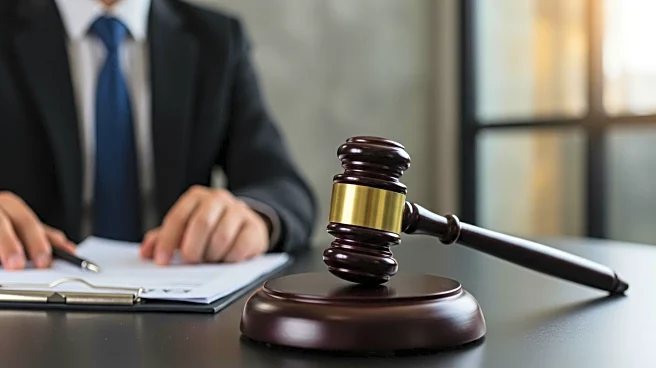What's Happening?
D.C. Mayor Muriel E. Bowser is managing the deployment of federal law enforcement and National Guard troops in Washington, D.C., initiated by President Trump. The federal presence aims to bolster D.C. police efforts, despite Bowser's condemnation of Trump's portrayal of the city as crime-ridden. The deployment includes agents from various federal agencies and National Guard troops, with Trump seeking to extend the emergency allowing federalization of D.C. police beyond 30 days. Bowser has expressed both criticism and optimism, acknowledging the potential benefits of increased law enforcement presence while disputing Trump's negative characterization of the city.
Why It's Important?
The federal surge in D.C. highlights tensions between local governance and federal authority, with implications for the city's autonomy and public safety strategies. Bowser's dual messaging reflects the complex political landscape, balancing cooperation with federal partners against resistance to Trump's executive actions. The deployment could impact crime rates and public perception, as well as influence future federal-state relations. The situation underscores the challenges of managing local issues under federal oversight, with potential consequences for D.C.'s governance and community relations.
What's Next?
President Trump plans to ask Congress for a long-term extension of the emergency allowing federalization of D.C. police, potentially bypassing Congress with a national emergency declaration. Bowser and D.C. police will continue to assess the impact of federal resources on crime reduction and public safety. The federal presence may lead to increased arrests and enforcement actions, with ongoing discussions about the metrics for success. Bowser's administration will focus on managing the federal surge while addressing community concerns and maintaining local governance.









